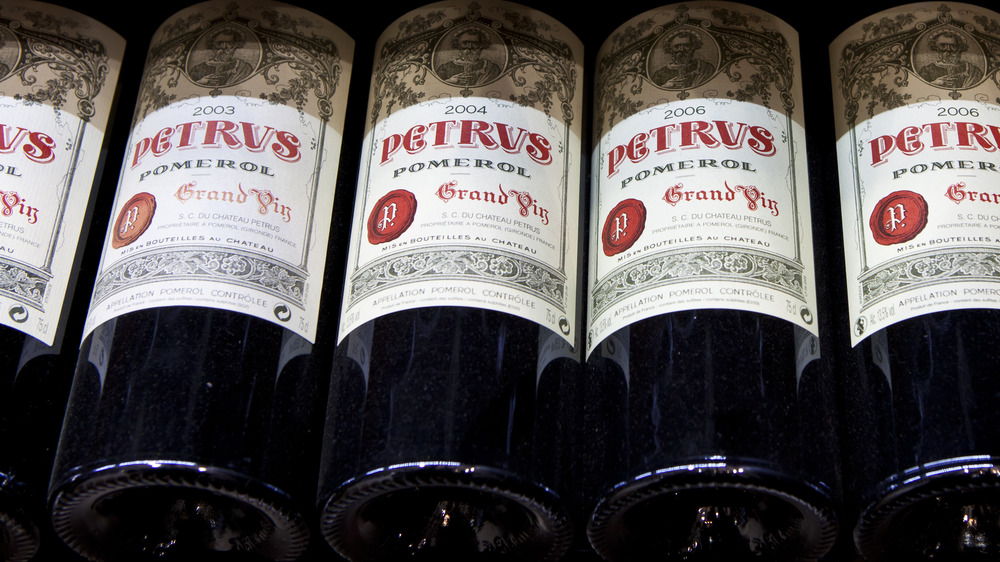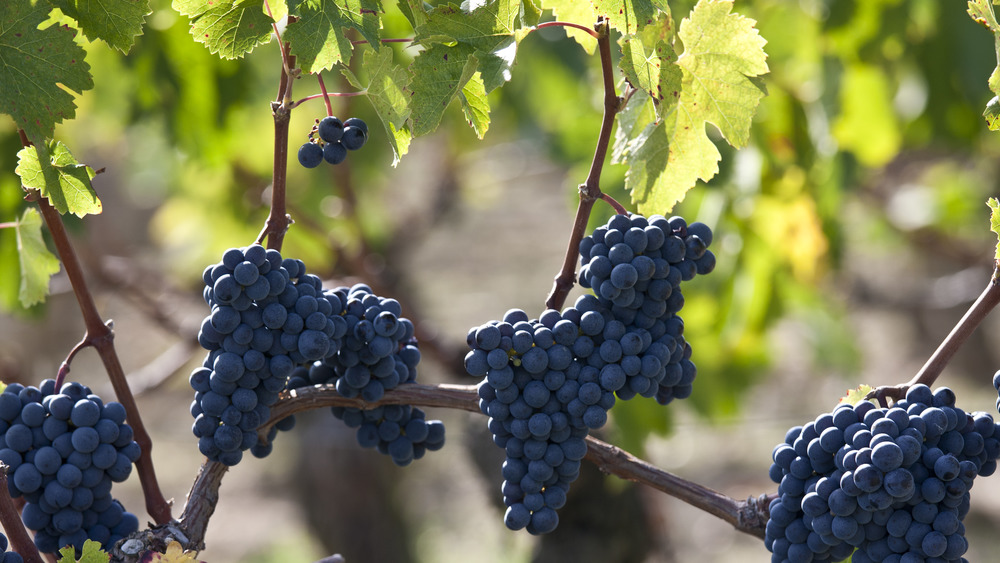The Real Reason A Case Of Wine Was Sent To Space Is Not What You'd Think
While everyone was busy talking about NASA's Mars Perseverance Rover, something else was happening at the International Space Station (ISS). It involved 12 bottles of the uber-prized, very expensive Château Petrus 2000 Bordeaux, which retails for 5,000 euros a bottle, or about $6,000. While we'd like to think that the ISS astronauts had brought up the wine to enjoy on special occasions, we couldn't be more far from the truth. The bottles of wine, along with 320 vine shoots, were actually sent to the space station as part of a 14-monthlong experiment on the aging process (via Euronews).
Biologist Michael Lebert, who was involved in the experiment, says they're hoping to understand more about gravity and oxygen and their roles in the aging process. They'll do so by comparing the Petrus bottles, which Al Jazeera says were stored in special steel cylinders for their 14 month journeys. Wine experts who sampled the repatriated wines say the results of this experiment are likely to turn heads.
Wine ages differently in space
14 months in space appears to have aged the ISS Petrus in a different way from its earthbound sibling, because as wine writer Jane Anson tells CNN, "I found there was a difference in both color and aromatics and also in taste. It just felt a little bit older, a bit more evolved than the wine that had remained on Earth." Anson also said that time in a gravity- and oxygen-free environment caused the wine to age between two and three years more than the Petrus that stayed home — so the space wine was in fact all ready to be enjoyed.
Another surprising outcome of the space excursion was seen in the cuttings, which survived the journey to the stratosphere and back. "All of the canes survived." Leybert tells Euronews. "But what happened, in addition, is that these canes which came back are growing much, much faster than the controls."
Scientists are now hoping to dig deeper, to find out how the lack of gravity might have forced the plants to adapt to new growing conditions. They'll also be taking a closer look at the Petrus, in procedures which we can hope will involve more tasting and less lab work.

